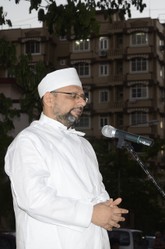The book begins when Gershom describes a chilling, but ultimately positive encounter with a Norwegian woman who had come to him for a discussion, but the discussion slipped into talk of the Holocaust, which had always fascinated her. While this was going on the rabbi slipped into an altered state of consciousness and saw,almost superimposed upon the woman's body, the figure of a Holocaust victim. To avoid being uncritical, he tested her by asking her to repeat the words of a Jewish prayer, which she could recite by heart, even though she herself was not Jewish and had never learned it. She spoke of vague memories of being a Holocaust victim. This experience triggered Gershom's quest.
From then on he began to realize that this was not a freak, one-off event. Slowly, steadily a significant number of individuals approached him to discuss their nightmares about being taken away and murdered. A short article cannot do justice to the wide range of harrowing accounts, so to get the real flavour of them you must read the book. They detail a phenomenon so challenging to conventional science and psychology that it was suppressed by a conspiracy of silence until Gershom broke the chains.
Gershom is a serious scholar, you would expect nothing less from a rabbi, a wonderfully well-educated group of people from a community that prizes scholarship. He takes an open minded and critical approach to these claims. Of vital importance is that he shows where he is coming from, which many scholars do not, laying out the specific branch of Judaism into which he was ordained as rabbi. This is the hasidic [chasidic] branch. This enables him to state that he comes from a theological tradition that accepts reincarnation.
The strength of the book is that the author is open to a methodology wider than the exclusively psychological. His psychological method is primarily a response to the serendipitous discovery that befell him that winter's night. But rather than experiment he follows the path of gathering personal testimonies. This is a psychologically valid technique, but as he is a healer/therapist rather than a researcher he did not do follow up studies as Ian Stevenson, who also researched reincarnation, did. This is a methodological limitation to his work, but as he makes no absolute claims to proof or authority, and merely makes an inference as to the probable truth of reincarnation, there is no loss of credibility therefrom.
He draws widely and deeply from the well of rabbinical scholarship and integrates the scholarship into his book. He is open to the paranormal. A great quality of genuine scholars like Gershom is that they confront issues face-on without the intellectually disreputable malpractice of explaining away experiences that do not fit their preconceptions. That he was prepared to confront a new experience rather than merely brushing it off as an anomaly is to his credit, and without this openness the book would not have been written.






 Darkness over the Earth the skies darkened when Jesus was crucified12 days ago
Darkness over the Earth the skies darkened when Jesus was crucified12 days ago
 TheThousand Year Gardenon 11/26/2025
TheThousand Year Gardenon 11/26/2025
 Women of the Gospelson 10/11/2025
Women of the Gospelson 10/11/2025
 Religious Gardenson 08/25/2025
Religious Gardenson 08/25/2025




Comments
Justinian had the military power to get what he wanted. He commanded the forces of empire. Remember, that while the Roman empire in the west fell in 470 the eastern empire lasted until 1453.
Thank you for your comment below, in answer on Jan. 17, 2024, to my previous, previous-day observation and question Jan. 16, 2024.
The papal kidnapping intrigues me. Where were papal bodyguards?
They probably did not know, but no one had the power to stop him.
The first paragraph to the second subheading, The message of the book, addresses the Second Council of Constantinople.
Did anyone know that Justinian was planning a papal kidnapping?
If so, did no one have the authority and the resources to stop it?
I have never heard of such recognition happening.
Rabbi Gershom appears to fit into the important role of information-gathering.
But does his recognition of a person as reincarnated lead to something else?
Would, for example, the person so recognized receive mention among the Righteous Among the Nations in Israel?
Ian Stevenson did a great deal of research into this issue, and one of his four published research books was on cases in India. His work is worth studying.
There are many who can remember their previous lives and they need not be spiritually adept. Some of them can go to many previous lives not just one. According to a study, in some cases; it was possible to verify the facts. In nutshell, the reincarnations from the holocaust are possible, but some people might try to fake them to gather attention.
This is why I said that reincarnation cases challenge all belief systems. Many Hindu scholars have thought that only the spiritually adept remember, but the cases studied here are ordinary folk. Similarly, Christianity has for fifteen hundred years had no place for reincarnation, but we cannot wish these phenomena away. Materialistic philosophies simply cannot cope with the idea. But also, when you go to the works of Ian Stevenson, who researched this subject, including much research in India, one of his researchers set out to seek evidence of retributive [punitive] karma, but had to admit that he could find none, despite the fact that his belief system proclaimed it.
I have come to the conclusion that the world is different from what humans think it is and that there are mysteries that we have yet to comprehend. This realization does not have the slightest bearing on my religious faith, as it consists of trust in Christ and a belief that he is a manifestation of God. But He did not bring a full understanding of this world or the next, but a promise that following him was the way.
Very interesting. I do believe in afterlife and reincarnation, but not sure if anyone can remember anything from their previous lives. I have read about such things happening though.